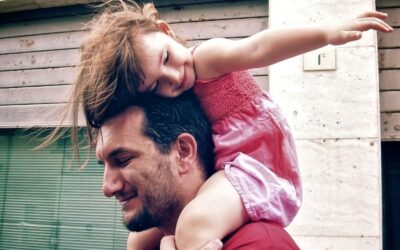Help your older child thrive in their new role as a big brother or sister
Having a newborn brings a complex flood of emotions along with it – particularly if you have an older child who also needs your attention. You’re adjusting your life and home to accommodate a little being, working on bonding with an entirely new person, functioning on a constant sleep deficit, and often handling conflicting feelings of guilt or sympathy for your older child while trying to focus on giving them enough love and attention as well.
Bringing a new baby home is a complicated part of life, both logistically and emotionally. Ease the transition for your older child with the following suggestions on how to help new siblings adjust to having a baby brother or sister in their life.
Honor their feelings
Although it’s important to foster a bond between siblings, don’t expect your older child to fall in love with a new baby right away. Think about it from a practical perspective – there’s suddenly an immobile, but often loud, the little person receiving an abundance of attention from every adult within reasonable proximity despite not doing anything all that interesting.
Introducing a newborn to the home usually changes the entire tone of the family and alters the rhythm of each day until everyone settles into the new family structure and routine. Be patient and understanding about any feelings that your older child may experience and whatever behavior might accompany those emotions.
Help your child by acknowledging and validating the way that they feel. For instance, if your older child is upset because you can’t take them outside to play since the baby is sleeping, say something like “I know it’s hard to wait to do the things you like so that the baby can sleep. You’re such a good helper to me for waiting, though. The baby won’t need as much sleep as she gets bigger, and then we will be able to go back to spending more time playing outside.”
Encourage your child to talk about their feelings and assure them that what they’re experiencing is normal but temporary.
Teach appropriate interaction
Help your child bond with the new baby by teaching them how to safely interact with a newborn. Demonstrate things such as soft touches, and explain how to gently rub the baby’s back or stroke their hair.
If your child is accidentally rough or abrupt with the baby, don’t react with anger. Remember that your older child doesn’t know better until you teach them. Instead, gently take their hands and show them the correct way to interact. If the aggression seems intentional, redirect their attention to another activity after discussing why that behavior is unacceptable. Reduce resentment by focusing discipline on the importance of following general rules regarding kindness rather than emphasizing the need to keep the baby safe.
Ask for help and praise involvement
Older siblings are often struggling with where they fit into the family dynamic once a new baby arrives, which can lead to feelings of jealousy and resentment. Offer your child chances to get involved – without forcing them to do so – by asking for small favors such as having them grab the wipes or having them entertain the baby with a rattle.
Make a point of praising their efforts and explaining how important their role as the big brother or sister is and how appreciative you are to have help. When family members or friends comment on the new baby, include your older child by explaining how grateful you are for their help and how well they have adapted as a sibling. Find little ways to remind your older child that they are valued and that you are grateful for their efforts.
Adding a new baby to the family can feel chaotic in many different ways at first, but remember that you’re growing not only as a family but also as individuals. Welcoming a new family member – especially one with as many needs as a newborn – comes with its own challenges and chances for personal growth. Help your older child understand and acknowledge their feelings and find ways to feel excited about their new role as a sibling.
The Virginia Infant & Toddler Specialist Network helps improve the quality of care for infants and toddlers through extensive resources, services, and education for caregivers. Learn more about how we can help you improve the standard of care.




